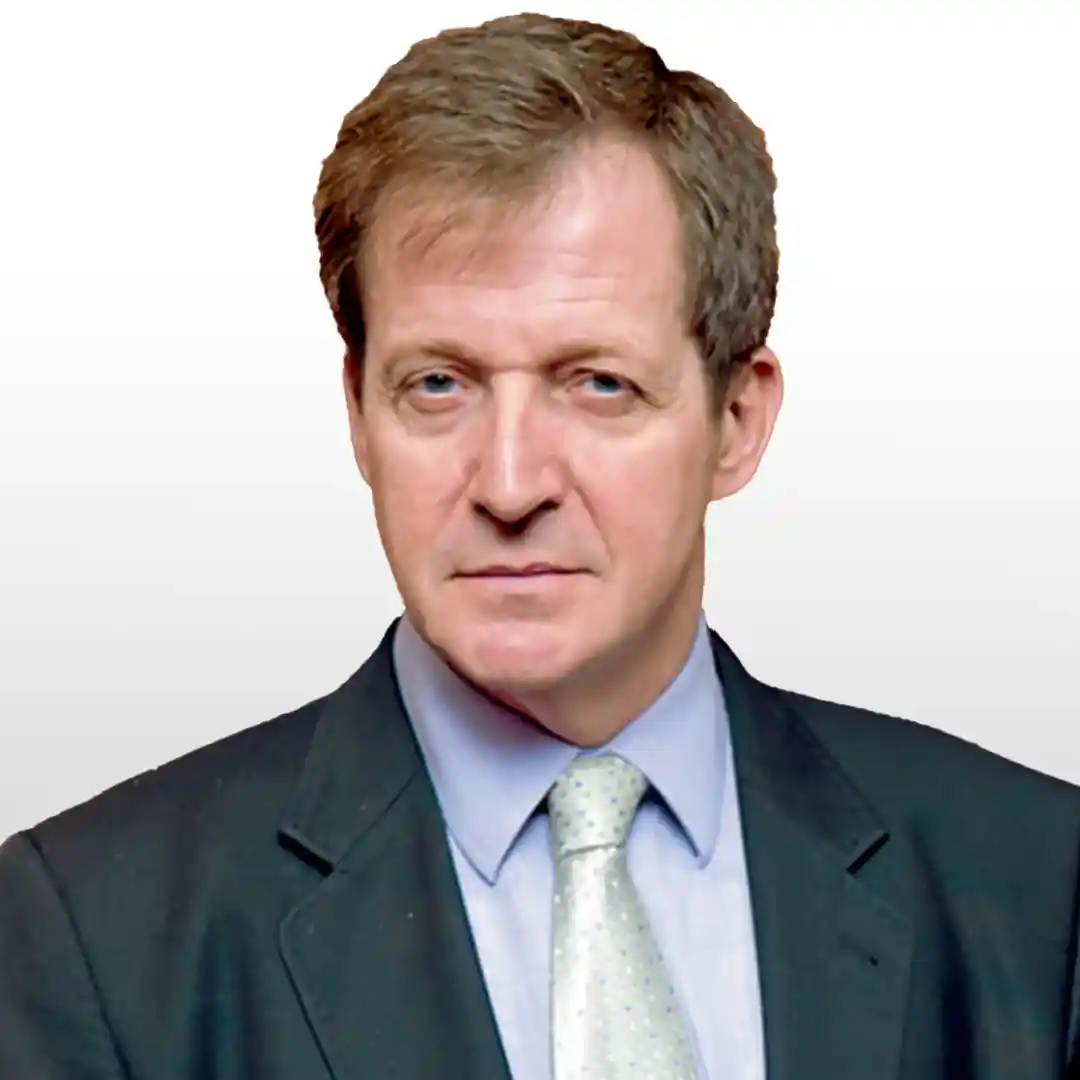Alastair Campbell is a writer, communicator, and strategist, best known for his role as former British Prime Minister Tony Blair’s spokesman, press secretary, and director of communications and strategy. He remains active in politics and campaigns both in Britain and overseas, dividing his time between writing, speaking, broadcasting, charity work, and consultancy.
For many years, Campbell was the chairman of fundraising for Bloodwise, Britain’s main blood cancer charity. In recent years, he has become increasingly involved with mental health charities and causes, sharing his own experiences with depression, psychosis, and addiction, as well as his brother Donald’s lifelong struggle with schizophrenia. A former ‘Mind Champion of the Year,’ he is an ambassador for several charities, including Mind, Rethink, and Alcohol Concern. He is also a patron of Maytree, the country’s only charity for the suicidal, and Kidstime, which supports children of mentally ill parents. Additionally, he serves as a Global Ambassador for Australians for Mental Health.
Campbell co-founded the all-party campaign, Equality4MentalHealth, which was credited in Parliament by then Chancellor George Osborne with securing an extra £600 million for mental health services. He actively supports the Heads Together campaign led by Prince William. In November 2017, Campbell was awarded an honorary fellowship of the Royal College of Psychiatrists for his leadership in breaking down the stigma surrounding mental illness and advocating for better services.
Although he left a full-time role with the Blair government in 2003, Campbell returned for the subsequent three general elections to assist Blair, Gordon Brown, and Ed Miliband. He also advised the Better Together campaign against Scottish independence and the Remain side in the EU referendum campaign. He worked for the People’s Vote Campaign in the unsuccessful pursuit of a second Brexit referendum and remains an outspoken critic of Brexit and the Johnson government.
Campbell continues to advise left-of-center parties, particularly in the Balkans, where he has served as a strategic director for the Albanian Socialist Party, which won a landslide victory in June 2013, securing Edi Rama as Prime Minister, followed by a second term four years later and a third in 2021.
He has been a Humanitas Visiting Professor on media at Cambridge University and has been honored by University College Dublin, Trinity College Dublin, and University College Cork for his contributions to the Northern Ireland Peace Process. Campbell is on the advisory board of Portland PR and independently advises governments, businesses, charities, sports organizations, and high-profile individuals.
Campbell helped establish the world’s first university in football business, UCFB, in Burnley, Lancashire, which has since expanded to Wembley and Manchester City’s Etihad stadium, as well as overseas.
Born in Yorkshire in 1957, Campbell is the son of a vet. His family moved to Leicester in 1968, and he attended school there before going to Cambridge University in 1975. He graduated four years later with a degree in modern languages. During his university education, he spent a year in France, where he had his first journalism published, writing articles on sex for Forum magazine. He also busked around the world with his bagpipes.
Campbell decided to pursue journalism and trained with the Mirror Group on local papers in the West Country before joining the Mirror itself in 1982. He left in the mid-80s to work for Eddy Shah’s Today newspaper as news editor but had a nervous breakdown and returned to the Mirror after convalescence. He rose to become political editor and the paper’s chief political columnist. He then worked briefly for Today under new ownership in 1994 before being asked by Tony Blair to be his press secretary when Blair became leader of the Labour Party.
Blair credited Campbell with coining the phrase ‘New Labour’ as the label for the party’s strategy and described him as a ‘genius’ for his role in helping to create New Labour, return the party to power, and win three general elections. After the 1997 landslide election victory, Campbell became the Prime Minister’s Chief Press Secretary and Official Spokesman, coordinating government communications and conducting twice-daily press briefings. He was seconded to NATO in 1999 to oversee communications during the Kosovo conflict. After helping Blair win a second landslide election victory, Campbell became Director of Communications and Strategy until he resigned in September 2003 to spend more time with his partner Fiona and their three children.
Campbell has been portrayed in many films and TV adaptations, most notably in The Queen, and is often thought to be the main inspiration for Armando Iannucci’s satirical creation, Number 10 spin doctor Malcolm Tucker. His main interests outside work include cycling, open water swimming, running, playing the bagpipes, and following Burnley FC.
In July 2007, Campbell published his first book on his time with Tony Blair, The Blair Years, which was an instant Sunday Times Number 1 bestseller. He has since published eight volumes of his full diaries and a special edition focused on the Northern Ireland peace process, The Irish Diaries. His first novel, All In The Mind, appeared in November 2008 to enthusiastic reviews for its frank examination of mental illness. His second novel, Maya, a gripping analysis of fame and the obsession it attracts, was published in February 2010. His third novel, My Name Is, published in September 2013, tells the story of a young girl’s descent into alcoholism, leading to his role as an ambassador for Alcohol Concern. His fourth novel, Saturday Bloody Saturday, co-written with former footballer Paul Fletcher, was published in February 2018 and was a Sunday Times bestseller.
Campbell has made several award-winning documentaries, including Cracking Up about his own breakdown in 1986, My Depression and Me in 2019, and films about Burnley FC, alcoholism, wildlife, and his love of bagpipe music.
In the wake of the UK’s EU referendum, Campbell helped set up a new newspaper, The New European, where he is editor-at-large and writes a weekly column. He has also written a monthly interview for GQ magazine and covered various sports for The Times, the Irish Times, and Esquire magazine.
Campbell is a sought-after speaker at events worldwide, specializing in strategic communications, leadership, team building, and crisis management. He has written 18 books, including several bestsellers. His latest book, BUT WHAT CAN I DO? Why politics has gone so wrong and what you can do to fix it, is one of his recent notable works.
He lives mainly in London with his partner of forty-two years, journalist and education campaigner Fiona Millar.







